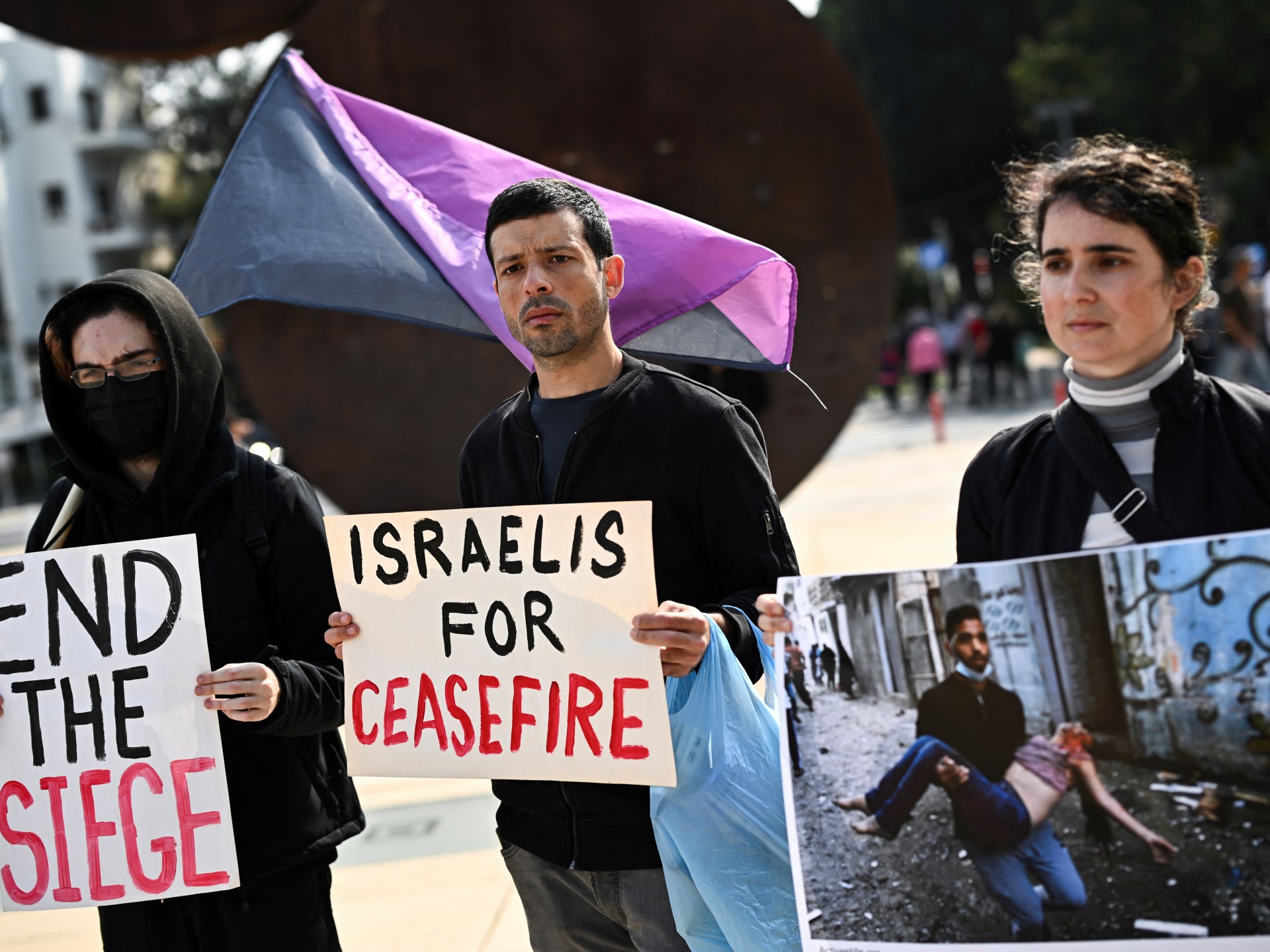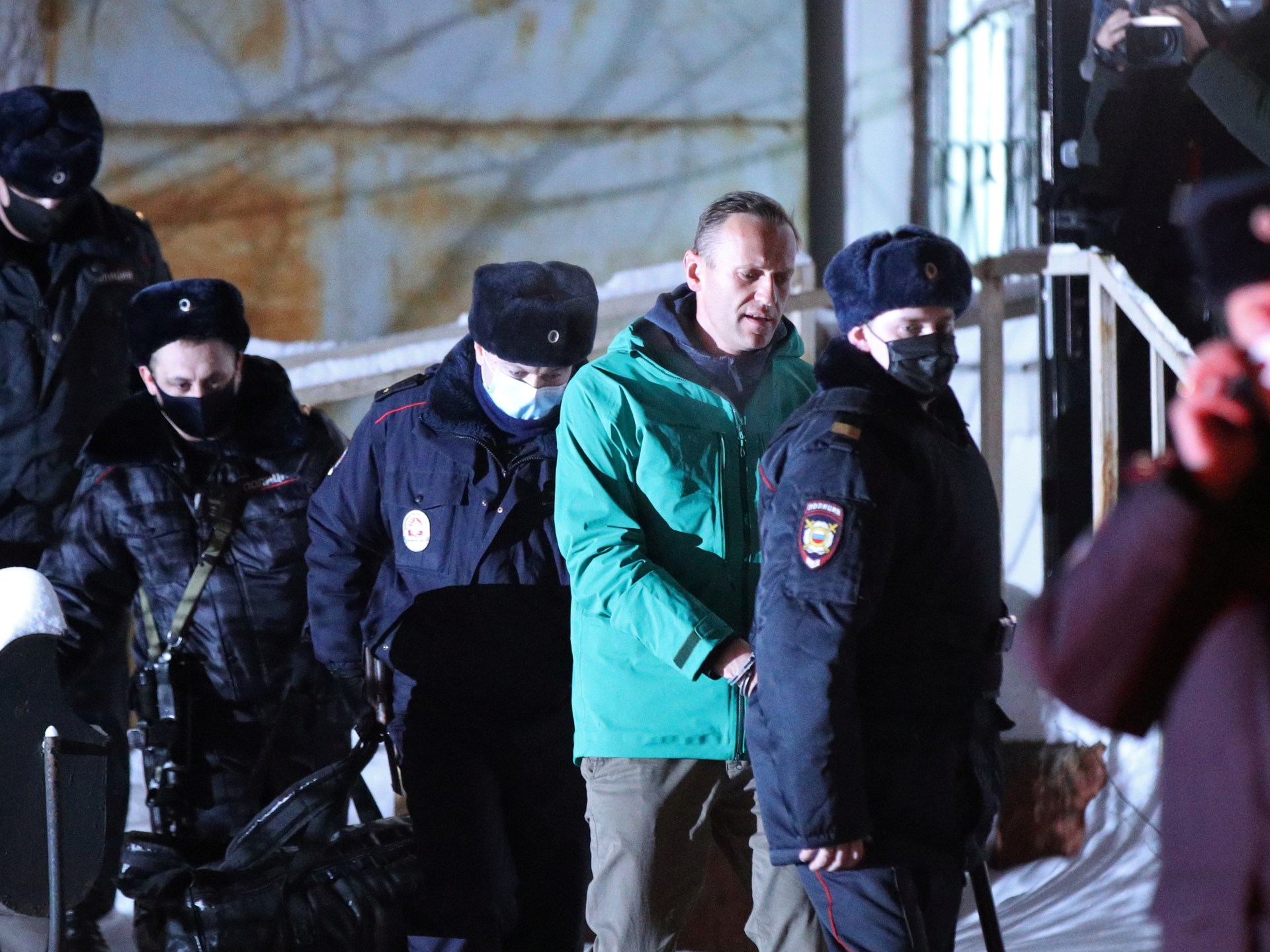The Israelis who want a ceasefire in their country’s war on Gaza | Benjamin Netanyahu News
West Jerusalem – “I don’t believe in this war and I don’t believe that the goals of this war can be achieved,” said 39-year-old Avital Suisa.
“This war is pointless.”
That blunt position is not typical for Israelis, but neither is Suisa.
She’s an activist from West Jerusalem, and is a firm believer in the two-state solution, even as Israeli society drifts away from that position, and one-state apartheid rule becomes more entrenched on the ground.
Suisa also regularly travels to the occupied West Bank, where she tries to discourage and even fend off settlers from attacking vulnerable Palestinian Bedouins.
But while Suisa sits firmly on the left of Israeli politics, and is in a minority when it comes to her activism, calls for a ceasefire in Israel are increasing – for various different reasons.
Some believe a ceasefire is the best way to save Israeli captives taken by Hamas, while others add that killing innocent people in Gaza jeopardises Israel’s security in the long run. Some only want a temporary pause, while others – like Suisa – want a permanent end to the fighting.
Since an October 7 attack on Israel by Hamas’s Qassam Brigades and other Palestinian armed factions – in which 1,139 people were killed and nearly 250 taken captive – Israel has killed more than 30,600 people in Gaza, starving the civilian population and destroying more than 70 percent of the enclave.
Israel’s stated aim has been to “eradicate Hamas”, but its scorched-earth tactics have deliberately and disproportionately killed civilians, including thousands of women and children.
The atrocities have sparked outrage across the world and prompted United States and European officials to begin to push for a ceasefire, including US Vice President Kamala Harris, who called for a six-week pause in the fighting on March 4.
But for Suisa, those calls for only a temporary pause don’t go far enough.
“Of course, the fact that nearly 1,200 people died on October 7 – some in a brutal way – is terrible. But that does not justify killing [more than] 30,000 people in Gaza – many kids and women – who didn’t do anything to me,” Suisa told Al Jazeera.
Captives exchange
On Sunday, families of Israeli captives held by Hamas marched from southern Israel to downtown West Jerusalem, where they called for the immediate release of their loved ones. Many in the crowd told Al Jazeera they supported a ceasefire that would bring their loved ones home.
“I understand it is not possible to bring back all the hostages [through military means]. The rational way is to bring them all back through a deal,” said Shay Bickmann, a 28-year-old Israeli medical student whose aunt was killed on October 7, and whose cousin was taken captive.
She did not clarify whether she supported a temporary or a full ceasefire, but said she defers to the Israeli government’s judgement and that she realises it is “problematic to make a deal with a terror organisation”.
Hamas is considered a “terrorist” organisation by Israel, the US and the European Union, but many Palestinians view the group as a legitimate resistance organisation.
Despite her views on making a deal with Hamas, Bickmann added that she does not want revenge, but wants to live in peace with her neighbours.
A temporary truce brokered in November led to the release of 110 Israeli captives in exchange for 240 Palestinian prisoners.
Another captive exchange might give hope to countless Palestinians in the West Bank and Gaza, whose loved ones have been unlawfully arrested or disappeared by the Israeli army.
According to Addameer, which monitors Palestinian detainees, Israel holds about 9,070 Palestinian political prisoners – a sharp increase from the 5,200 held before October 7.
Many Palestinians – including children – were arrested and are being held in administrative detention without charge for expressing sympathy for Palestinians in Gaza or for waving a Palestinian flag.
The number of detainees does not include the many Palestinians being held, interrogated and tortured in Israeli bases and makeshift detentions in Gaza, Addameer told Al Jazeera.
Israel’s retaliatory violence against Palestinians in the occupied West Bank and Gaza has compelled some Israelis to call for a permanent ceasefire.
“I think we need to get a ceasefire to start to promote a better place and region [for Palestinians and Israelis]. That would be a start,” said Naima, an Israeli who did not disclose her last name due to the polarising political climate in Israel.
A return to normal
Many Israelis also told Al Jazeera that they yearn for life to return to normal, although the effects on daily life in Israel have been marginal compared to the destruction of Gaza that has upended the lives of 2.3 million Palestinians.
However, Israel’s economy has been impacted by Israel’s ongoing war in Gaza. Its construction sector has been hit hard, and both foreign and domestic tourism, which struggled to recover after the COVID-19 pandemic, have flatlined since October 7.
Plia Kettner, 39, said most of the service industry, including her restaurant which caters to tourists, has taken a financial hit.
“I hope we can recover once the war ends and tourists return,” she told Al Jazeera.
Despite the financial woes, Kettner added, she believes that about half the population would prefer to continue an indefinite war on Gaza until Hamas is eradicated while the other half believes that negotiating a ceasefire to secure the release of Israeli captives is the foremost priority.
However, experts and commentators have long argued that Hamas cannot be defeated in any demonstrable sense and that an all-out war on Gaza will not reinforce Israel’s security.
Suisa said that in her view, Israel’s war on Gaza is generating so much suffering it will perpetuate another “cycle of violence”.
“I do think that many people in Gaza grew up in such terrible conditions and it led them to become the [fighters] they became,” she said.
Suisa was referring to Israel’s 18-year blockade on Gaza that transformed the enclave into an “open-air prison”, stripped generations of graduates of hope for a future, and caused the extreme poverty Gaza has been struggling with for years, according to rights groups.
“I don’t believe [some Israelis] who say that Palestinians just want to kill us. I would like to see Israel commit to a peace process that gives everyone hope,” Suisa said.
“I want to break the cycle.”
Check out our Latest News and Follow us at Facebook
Original Source







